
views
Getting Enough Rest
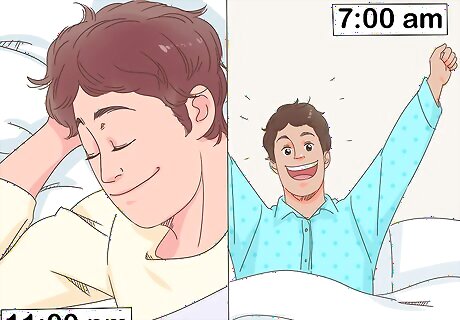
Go to bed and wake up at the same time every day. Setting a regular sleep schedule will help you fall asleep faster and improve the quality of your sleep. Aim to get between 7-9 hours of sleep a night if you are an adult, or 8-10 hours if you're a teenager. For example, you might choose to go to bed at 11 pm and wake up at 7 am each morning. This gives you 8 hours of sleep a night. Avoid the urge to stay up late or sleep in on the weekends. This can disrupt your sleep schedule and leave you feeling exhausted.
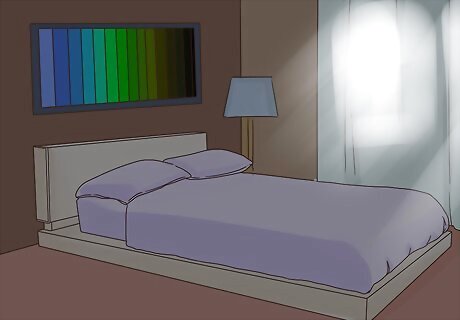
Create a restful sleep environment. Keep your bedroom dark, quiet, and cool to improve your quality of sleep. Put curtains up on the windows, and avoid using your bed for anything other than sleep or sex. Keep technology out of the bedroom. At the very least, don’t use phones, tablets, or computers in bed. Stop using bright screens an hour before bed. The light can keep you awake and disrupt your rest. Reduce noise in the house or bedroom while you sleep. Avoid sleeping with music or the TV on. If you need some sound, try using a white noise machine instead.
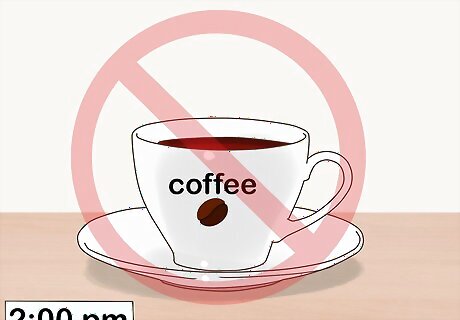
Stop drinking caffeinated beverages after 2 pm. While a cup of coffee or tea might pick you up in the morning, too much caffeine later in the day might interfere with your ability to sleep. If you have insomnia, consider avoiding caffeine altogether. You can always drink decaf coffee or a caffeine-free tea, like ginger, chamomile, or hibiscus tea.
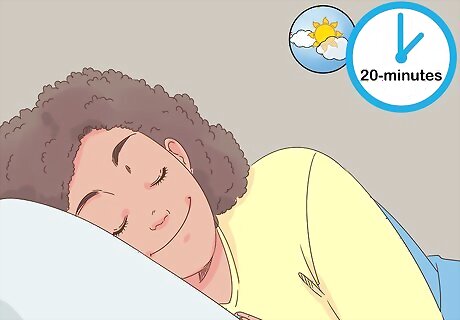
Take a 20-minute nap during the day. Choose a time when you typically feel tired or exhausted. Set your alarm for 20 minutes and go to sleep. Don’t sleep for longer than 20 minutes, as it could leave you feeling groggy or more tired. If you work during the day, you may need to fit your nap during lunchtime or take it when you come home from work every day. If you cannot sleep at night, do not take a nap. Instead, try to stay awake until it is bedtime.
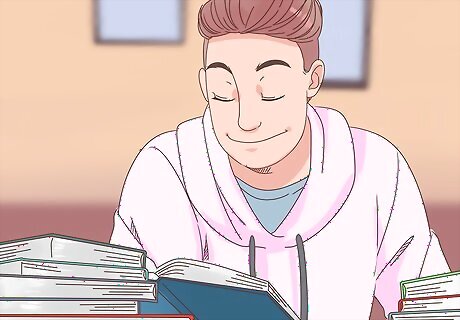
Take a quiet, restful break at some point during the day. Just taking a break and resting for 20 minutes can have a big impact on your energy and mood. Fit in a break somewhere in your day to meditate, stretch, read, listen to calming music, or just relax. Schedule this break for the time of day when you usually feel most tired or down. Choose an activity that helps you feel calm, such as deep breathing or drawing.
Changing Your Lifestyle

Talk to your doctor about possible vitamin deficiencies. Depression-related fatigue can be made worse by dietary deficiencies. Ask your doctor if it’s possible you might not be getting enough of certain essential vitamins and minerals. If tests reveal any deficiencies, your doctor may recommend taking supplements or changing your diet. For example, you may experience fatigue if you are deficient in iron, vitamin B, or magnesium.
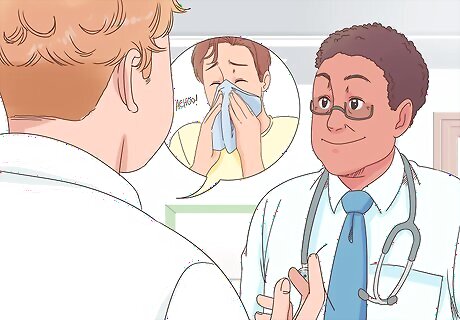
Find out if allergies are contributing to your fatigue. Sometimes allergies or food intolerances can cause inflammation throughout your entire body and leave you feeling run-down and tired. Talk to your doctor about whether environmental allergies or food intolerances may be making you feel worse. Your doctor can recommend dietary changes, allergy treatments, and strategies for identifying and avoiding allergy or inflammation triggers.

Eat nutrient-rich foods every 2-3 hours. Small meals or snacks every few hours can help you stabilize your energy levels throughout the day. Choose fresh foods that provide protein and complex carbohydrates, such as vegetables, eggs, lean meats, and nuts. For example, you might have a snack of carrots and hummus, celery and peanut butter, beef jerky, or a hard-boiled egg. Eat whole grains instead of white grains. Go for whole wheat bread, brown rice, oatmeal, and wheat pasta instead of white bread, rice, and pasta. Avoid foods that are high in added sugar. If you need something sweet, stick to fruit or yogurt, but don’t overdo it. Too much sugar can cause a spike in blood pressure and make you crash after eating.
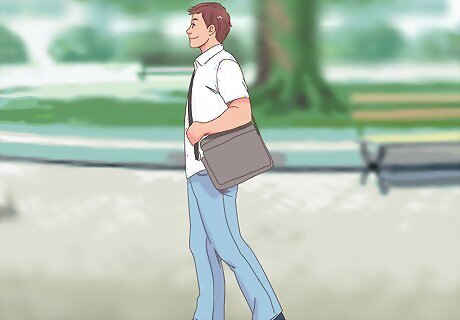
Get up and move when you feel sleepy. A simple walk can help you feel more alert and energetic. If you’re feeling fatigued, get up and stretch. Do some jumping jacks or take a brisk walk. If you’re in an office or school all day, use your breaks to do something active, like going up and down stairs, walking around the building, or doing dynamic stretches. Exercising for at least 30 minutes each day can help you fight symptoms of fatigue and improve some symptoms of depression. Go for a bike ride, run, or swim. Visit the gym at least 2-3 times a week for weight lifting, cardio, or a fitness class.
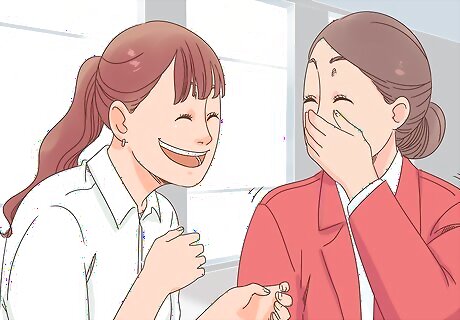
Remain social with friends and family. When you are fatigued, it may feel impossible to leave the house. Yet socializing with friends and family can help perk you up and keep you focused. Try to fight through the fatigue and schedule meetings and hangouts with those you love. If you feel like you can’t leave the house, just try calling someone, such as your mother or best friend. Look to hang out in low-key or laid-back situations. Consider getting coffee with a friend or chatting with a coworker.
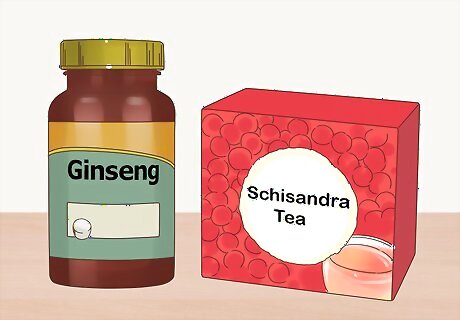
Try using adaptogen supplements. Adaptogens are found in certain herbs. They may be able to help decrease fatigue, improve mental concentration, and manage depression. Look for supplements containing Rhodiola rosea, ginseng, or Schisandra chinensis (sometimes just sold as Schisandra). You can take these herbs as pills, tinctures, or teas. Follow the instructions on the label for dosing. While adaptogens are generally safe, always talk to your doctor before starting supplements or herbal remedies to make sure that the herbs won't interfere with your medications. In general, only take adaptogens for 12 weeks at a time. Afterwards, take a break for 2 weeks or start taking a different adaptogen, so that your body doesn’t get used to the herb.
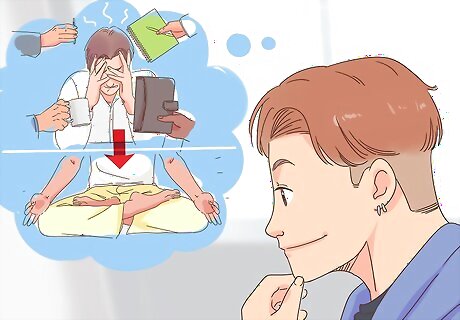
Identify and minimize sources of stress. Stress can leave you feeling exhausted. While it’s not always possible to avoid stressors, it can be helpful to identify them and reduce your exposure as much as you can. Think about situations, places, or people that tend to cause you stress, and consider strategies for avoiding them. For example, if you tend to feel especially stressed out around a particular acquaintance, spend as little time with them as possible. When you can’t avoid stress, try managing it with techniques like yoga or mindful meditation.
Adjusting Your Medication
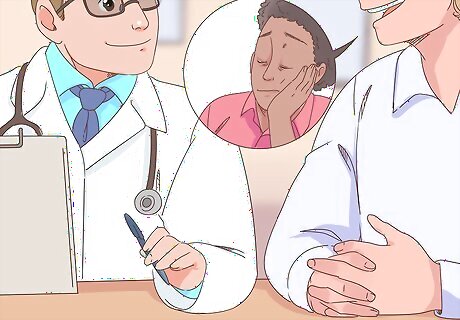
Tell your doctor how much you have been sleeping. Whether you have been sleeping too much or too little, your doctor should know so that they can form an appropriate treatment plan. Let your doctor know about any sleepiness or fatigue during the day. If you consistently cannot sleep at night, ask your doctor if you could have a sleep disorder. Depression is often a symptom of sleep disorders, like obstructive sleep apnea, restless leg syndrome, or chronic insomnia. If you struggle to stay awake during the day, even after a full night of sleep, ask your doctor if you might have hypersomnia. Hypersomnia is excessive sleepiness during the day.
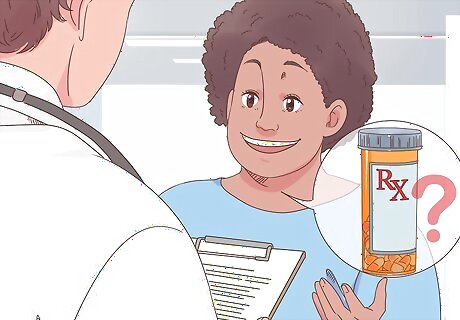
Discuss whether your current medications could be causing fatigue. Serotonin and norepinephrine reuptake inhibitors (SNRIs) and selective serotonin reuptake inhibitors (SSRIs) may cause fatigue as a side effect. If your fatigue started or got worse after starting these medications, talk to your doctor. They may change your medication or adjust the dose. Common SNRI’s include Cymbalta, Fetzima, and Effexor XR. Common SSRI’s include Lexapro, Zoloft, Paxil, and Prozac. Do not stop taking your medication without your doctor’s permission. If you are on any medications other than antidepressants, be sure to tell your doctor as well.
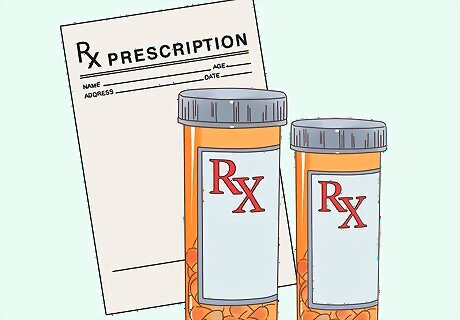
Get a prescription medication if you have severe fatigue. There are many different medications that can fight fatigue, depending on the type of issues you are having. Follow your doctor’s instructions for taking this medication daily. If you are diagnosed with a sleep disorder, such as insomnia, your doctor may prescribe a sedative to be taken before bed. If you were diagnosed with hypersomnia, your doctor may give you a stimulant to take in the morning.
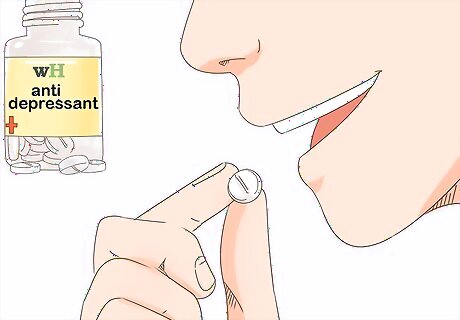
Take your antidepressant before you go to bed. Ask your doctor first to see if this is a safe option for you. If they allow it, swallow your pill just before bedtime. This can help you sleep through the fatigue so that you are alert and awake in the daytime. If you have insomnia or difficulty sleeping at night, take your antidepressant in the morning if possible. In this case, the antidepressant could be interfering with your ability to sleep.
















Comments
0 comment